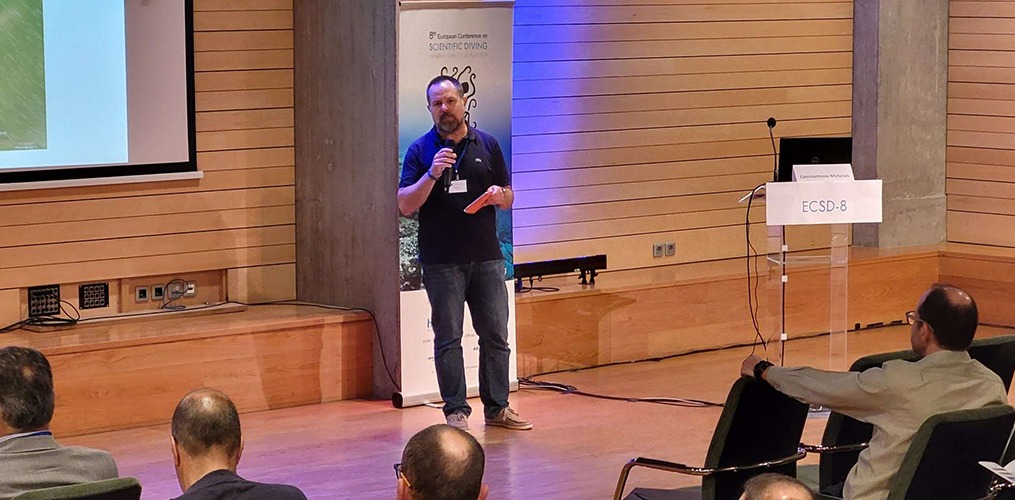
From April 22 to 26, the scientific diving community will gather in Heraklion, Crete, for the 8th European Conference of Scientific Diving (ECSD). Hosted by the Hellenic Centre for Marine Research—a member of LifeWatch Greece, one of our National Nodes—and the European Panel for Occupational Scientific Diving, this year’s conference covers a wide range of topics across the marine sciences spectrum, including biology, ecology, physical oceanography, biogeochemistry, geosciences, and archaeology.
There’s also a strong focus on cutting-edge technologies in scientific diving, diving education and training, and diving regulation. Newly emerging themes such as marine spatial planning and marine renewable energies highlight the conference’s forward-looking agenda, especially in sustainable coastal zone management and the environmental aspects of marine renewable energy technologies.
The European Conference of Scientific Diving, an essential forum for European leaders, researchers, and students in scientific diving, features LifeWatch ERIC’s CEO, Christos Arvanitidis, as a member of the Scientific Committee. His participation underscores the organisation’s dedication to advancing marine science through collaboration and innovation.
The ECSD background
Since its first edition in 2015, the event has been building on a strong foundation by merging the International Symposium on Occupational Scientific Diving and the international workshop on Research in Shallow Marine and Water Systems into a unified annual meeting. The ECSD has become an important international platform for showcasing research findings, discussing new technologies, and addressing safety and institutional matters within the scientific diving community. Throughout the years, it has established itself as a critical forum for the community to come together and collaborate.